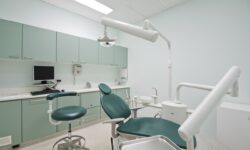Dr. Napolitano Eye Doctor ⏬⏬
Welcome to the captivating world of Dr. Napolitano, a highly esteemed and accomplished eye doctor dedicated to providing exceptional eye care services. With an unwavering passion for vision health, Dr. Napolitano combines extensive expertise with cutting-edge techniques to deliver personalized and comprehensive solutions for all your ocular needs. From routine examinations to advanced surgical procedures, Dr. Napolitano’s unrivaled commitment to excellence ensures that each patient receives optimal care in a warm and compassionate environment. Embark on a transformative journey towards clearer, healthier vision under the expert guidance of Dr. Napolitano, where your visual well-being takes center stage.
Dr. Napolitano: An Experienced Eye Doctor
Dr. Napolitano is a highly skilled and experienced eye doctor who specializes in providing exceptional eye care services to patients. With a wealth of knowledge and expertise in the field, Dr. Napolitano is dedicated to ensuring optimal eye health and vision for individuals of all ages.
As an ophthalmologist, Dr. Napolitano offers comprehensive eye examinations to diagnose and treat various eye conditions and diseases. These examinations involve assessing visual acuity, checking for refractive errors, and examining the overall health of the eyes.
Dr. Napolitano’s commitment to patient care extends beyond routine examinations. They are proficient in performing advanced procedures such as cataract surgery, LASIK, and corneal transplants. With their precise surgical skills and use of cutting-edge technology, Dr. Napolitano strives to enhance patients’ quality of life through improved vision.
Patients appreciate Dr. Napolitano’s compassionate approach, as they take the time to listen to their concerns and provide personalized treatment plans. Whether it’s prescribing corrective lenses, managing chronic eye conditions, or offering preventive care advice, Dr. Napolitano ensures that each patient receives individualized attention and the highest level of care.
In addition to their clinical practice, Dr. Napolitano actively contributes to the advancement of eye care research and education. They stay updated with the latest developments in the field and incorporate evidence-based practices into their treatments.
If you are seeking a reputable eye doctor who combines expertise, compassion, and a dedication to improving vision, Dr. Napolitano is an excellent choice. Their proficiency in diagnosing and treating eye conditions, along with their commitment to patient well-being, make them a trusted professional in the field of ophthalmology.
Eye Doctor Near Me
If you’re looking for an eye doctor near your location, it’s important to find a qualified professional to take care of your vision health. Regular eye exams are crucial for maintaining good eyesight and detecting any potential issues early on.
To locate an eye doctor in your area, there are a few options you can consider. One reliable method is to ask for recommendations from family, friends, or colleagues who have had positive experiences with their eye doctors. They can provide valuable insights into the quality of service and expertise offered by different practitioners.
Another approach is to utilize online directories and search engines. You can simply enter “eye doctor near me” or “ophthalmologist near me” into a search engine, and it will display a list of eye care professionals in your vicinity. Make sure to read reviews and check their credentials before making a decision.
When choosing an eye doctor, consider factors such as their specialization, experience, and the services they offer. Optometrists are primary eye care providers who conduct eye exams, prescribe eyeglasses or contact lenses, and diagnose and treat common eye conditions. Ophthalmologists, on the other hand, are medical doctors specializing in eye care, including surgery and more complex treatments.
Once you’ve narrowed down your options, contact the clinics or practitioners directly to inquire about their availability, appointment scheduling, and accepted insurance plans. It’s essential to find a convenient location and appointment time that fits your schedule.
Remember, regular eye check-ups are vital for maintaining optimal vision health. Even if you don’t currently experience any vision problems, routine eye exams can help detect early signs of eye diseases or conditions that may not have noticeable symptoms. Taking care of your eyes now can contribute to better long-term eye health and overall well-being.
Ophthalmologist: A Specialist in Eye Care
An ophthalmologist is a medical doctor who specializes in the diagnosis, treatment, and management of diseases and disorders related to the eyes. They are experts in providing comprehensive eye care and play a vital role in maintaining good vision and overall eye health.
Educational Background and Training
To become an ophthalmologist, one must complete several years of rigorous education and training. After obtaining a bachelor’s degree, aspiring ophthalmologists attend medical school, typically for four years, to earn a Doctor of Medicine (M.D.) or Doctor of Osteopathic Medicine (D.O.) degree.
Following medical school, ophthalmologists undergo a residency program, which usually lasts three to four years. During this period, they receive specialized training in various aspects of eye care, including the diagnosis and treatment of eye conditions, surgical procedures, and patient management.
Scope of Practice
Ophthalmologists have a wide scope of practice and can diagnose and treat various eye conditions, such as cataracts, glaucoma, macular degeneration, diabetic retinopathy, and corneal diseases. They perform comprehensive eye examinations, prescribe corrective lenses, and provide medical and surgical interventions when necessary.
In addition to general ophthalmology, some ophthalmologists choose to specialize in specific areas such as pediatric ophthalmology, retina, cornea, neuro-ophthalmology, or oculoplastics. This allows them to develop expertise in treating specific eye conditions or performing specialized surgical procedures.
Collaboration with Other Healthcare Professionals
Ophthalmologists often work in collaboration with other healthcare professionals, such as optometrists and opticians. While ophthalmologists are medical doctors who specialize in surgical interventions and the management of complex eye conditions, optometrists primarily focus on vision testing, prescribing corrective lenses, and managing certain eye disorders. Opticians, on the other hand, are responsible for fitting and dispensing eyeglasses and contact lenses based on prescriptions provided by ophthalmologists or optometrists.
Importance of Regular Eye Examinations
Regular eye examinations by an ophthalmologist are crucial for maintaining good eye health and detecting potential eye problems early on. These examinations help identify refractive errors, assess the risk factors for eye diseases, and enable timely treatment to prevent further complications and preserve vision.
Ophthalmologists are highly trained medical professionals specializing in eye care. They play a vital role in diagnosing, treating, and managing various eye conditions, ensuring optimal eye health and vision for their patients. Regular visits to an ophthalmologist are essential for maintaining good eye health and preventing potential vision problems.
Optometrists
An optometrist is a healthcare professional who specializes in assessing and managing the visual system and eye health. They play a crucial role in providing primary eye care services to individuals of all ages.
Optometrists are highly skilled in performing comprehensive eye examinations to evaluate vision and detect various eye conditions, such as refractive errors (nearsightedness, farsightedness, astigmatism), presbyopia, and eye diseases like glaucoma, cataracts, and macular degeneration.
One of the key responsibilities of an optometrist is to prescribe and dispense corrective eyewear, such as glasses or contact lenses, based on the individual’s visual needs. They carefully assess the prescription requirements and consider factors like lifestyle, occupation, and personal preferences to determine the most suitable eyewear options.
In addition to vision correction, optometrists also provide preventive care and educate patients about maintaining good eye health. They offer guidance on proper eye hygiene, nutritional advice for optimal eye health, and recommend protective measures against environmental hazards that may affect vision, such as UV rays or excessive screen time.
When necessary, optometrists can refer patients to other healthcare professionals, such as ophthalmologists or specialized eye clinics, for further evaluation and treatment of complex eye conditions or surgical interventions.
Eye Care: Essential Practices for Healthy Vision
Proper eye care is crucial for maintaining healthy vision and preventing potential eye problems. By adopting a few essential practices, you can ensure the well-being of your eyes and promote optimal eye health.
1. Regular Eye Exams:
Schedule regular comprehensive eye exams with an optometrist or ophthalmologist to assess your overall eye health, check for refractive errors, and detect any underlying conditions early on.
2. Protect Your Eyes from Ultraviolet (UV) Rays:
Wear sunglasses that provide 100% UV protection whenever you are exposed to sunlight. Prolonged exposure to UV rays can increase the risk of cataracts and other eye disorders.
3. Practice Proper Contact Lens Hygiene:
If you wear contact lenses, follow the recommended cleaning and disinfection procedures provided by your eye care professional. Improper lens care can lead to eye infections and other complications.
4. Maintain a Balanced Diet:
Eat a nutritious diet rich in antioxidants, vitamins (especially A, C, and E), minerals, and omega-3 fatty acids to support good eye health. Include foods like leafy green vegetables, citrus fruits, fish, nuts, and seeds in your meals.
5. Take Regular Screen Breaks:
When working on digital devices for extended periods, practice the 20-20-20 rule: Every 20 minutes, look away from the screen and focus on an object about 20 feet away for at least 20 seconds. This helps reduce eye strain and fatigue.
6. Ensure Proper Lighting:
Avoid excessive glare and provide adequate lighting in your workspace or reading area. Use adjustable lighting fixtures, position them correctly, and avoid placing the light source directly behind or in front of you.
7. Quit Smoking:
Smoking increases the risk of developing cataracts, macular degeneration, and other eye conditions. Quitting smoking not only benefits your overall health but also helps protect your eyes.
8. Practice Eye Safety:
When participating in sports or engaging in activities with potential eye hazards, wear protective eyewear such as safety glasses or goggles. This is especially important during high-risk activities like welding or using power tools.
By incorporating these practices into your daily routine, you can maintain healthy vision and reduce the risk of eye problems. Remember to prioritize regular eye exams and consult an eye care professional if you experience any unusual symptoms or changes in your vision.
Vision Center
A vision center is a facility that provides comprehensive eye care services, including eye examinations, diagnosis and treatment of eye diseases, prescription of corrective lenses, and management of vision-related conditions. These centers are typically staffed by optometrists, ophthalmologists, and other specialized professionals who are trained to evaluate and address various visual impairments.
One of the primary functions of a vision center is to perform eye examinations to assess visual acuity and identify any refractive errors such as nearsightedness, farsightedness, or astigmatism. Based on the examination results, optometrists can prescribe eyeglasses or contact lenses tailored to correct these specific issues and improve overall vision.
Moreover, vision centers play a crucial role in diagnosing and managing eye diseases and disorders. They utilize advanced technologies and equipment to detect conditions like glaucoma, cataracts, macular degeneration, and diabetic retinopathy. Early detection and timely treatment of these conditions can help prevent further deterioration of vision and preserve ocular health.
In addition to diagnostic services, vision centers also offer various therapeutic interventions. These may include administering medications, providing pre- and post-operative care for surgeries such as LASIK or cataract removal, and fitting specialty contact lenses for individuals with specific visual needs.
Furthermore, vision centers often provide assistance for individuals with low vision or visual impairments that cannot be fully corrected by standard eyewear. They may offer aids and devices such as magnifiers, telescopic lenses, and electronic visual aids to enhance functional vision and improve quality of life.
Overall, vision centers serve as vital resources for maintaining optimal eye health and addressing visual challenges. By combining clinical expertise, advanced technology, and a range of services, they aim to ensure that individuals have access to comprehensive eye care and achieve the best possible visual outcomes.
Eye Exams
An eye exam is a comprehensive evaluation of the health and vision of a person’s eyes. It is an essential process that helps assess visual acuity, detect eye diseases or conditions, and determine the need for corrective measures such as glasses or contact lenses. Eye exams are typically performed by optometrists or ophthalmologists, who are trained professionals specializing in eye care.
During an eye exam, various tests and assessments are conducted to gather information about a person’s eye health. This may include examining the clarity of vision through a visual acuity test, checking for refractive errors like nearsightedness or farsightedness, evaluating eye coordination and depth perception, and examining the overall health of the eye structures.
Regular eye exams are important for several reasons. Firstly, they help detect and diagnose eye conditions and diseases early on, including glaucoma, cataracts, macular degeneration, and diabetic retinopathy. Early detection allows for timely treatment, which can help prevent further vision loss or complications. Secondly, eye exams enable the prescription of appropriate corrective measures like glasses or contact lenses to improve visual acuity and quality of life.
It is recommended that individuals undergo regular eye exams, even if they do not experience any noticeable vision problems. The frequency of exams may vary depending on age, overall health, and risk factors. Children should have their first comprehensive eye exam at around six months of age, followed by additional exams at age three and before starting school. Adults should generally have eye exams every one to two years, while individuals over the age of 60 or those with existing eye conditions may require more frequent examinations.
To maintain good eye health, it is also essential to adopt healthy habits such as protecting the eyes from harmful ultraviolet (UV) rays by wearing sunglasses, maintaining a balanced diet rich in eye-friendly nutrients, avoiding excessive screen time, and practicing regular breaks during prolonged visual activities.
Contact Lenses
Contact lenses are a popular vision correction option that provides an alternative to traditional eyeglasses. They are thin, curved pieces of plastic or silicone material that are placed directly on the cornea of the eye. Contact lenses offer improved visual acuity and a more natural appearance compared to glasses.
Types of Contact Lenses:
- Soft contact lenses: These lenses are made of a soft, flexible plastic material and are comfortable to wear. They can correct various vision problems, including nearsightedness, farsightedness, and astigmatism.
- Rigid gas permeable (RGP) lenses: These lenses are made of a rigid material that allows oxygen to pass through. RGP lenses provide crisp vision and are often recommended for people with astigmatism or certain corneal irregularities.
- Extended wear lenses: These lenses are designed for overnight wear and can be worn continuously for up to several weeks, depending on the type. However, it’s essential to follow your eye care professional’s recommendations to avoid complications.
- Daily disposable lenses: These lenses are worn once and then discarded. They eliminate the need for cleaning and maintenance, making them convenient and hygienic.
Benefits of Contact Lenses:
- Contact lenses provide a wider field of view compared to glasses as they move with your eyes.
- They don’t obstruct your peripheral vision, allowing for a more natural visual experience.
- Contacts offer flexibility for active individuals who participate in sports or other physical activities.
- They can enhance your appearance since they don’t alter your facial features like glasses.
Proper Contact Lens Care:
To maintain healthy eyes and reduce the risk of eye infections, it’s crucial to follow proper contact lens care practices. This includes:
- Cleaning and disinfecting lenses using recommended solutions.
- Replacing lenses as per the prescribed schedule.
- Avoiding wearing lenses for longer durations than recommended.
- Regularly visiting an eye care professional for check-ups and adjustments.
Overall, contact lenses offer a convenient and effective way to correct vision problems while providing several advantages over traditional eyeglasses. However, it’s important to consult with an eye care professional to determine the most suitable type and care routine for your specific needs.
Glasses
Glasses, also known as eyeglasses or spectacles, are optical devices worn on the face to improve vision or protect the eyes. They consist of lenses mounted in a frame that sits on the bridge of the nose and ears.
Glasses are primarily used to correct refractive errors such as myopia (nearsightedness), hyperopia (farsightedness), astigmatism, and presbyopia. The lenses in glasses help focus light onto the retina, compensating for the eye’s inability to do so naturally.
In addition to vision correction, glasses can serve other purposes. They can be equipped with special lenses to enhance specific visual abilities, such as reducing glare or protecting against harmful ultraviolet (UV) rays from the sun. Some glasses are designed for occupational or safety purposes, providing added protection in hazardous environments.
The design and style of glasses have evolved over time. Today, there is a wide variety of frames available, ranging from classic and timeless designs to trendy and fashionable options. Frames can be made from different materials like plastic, metal, or a combination of both. They come in various shapes and sizes to accommodate different facial features and personal preferences.
Proper care and maintenance of glasses are essential to ensure their longevity and optimal performance. Regular cleaning, storing them in a protective case when not in use, and avoiding rough handling can help preserve the clarity of the lenses and the integrity of the frames.
Eye Health
Eye health is essential for maintaining good vision and overall well-being. The eyes are complex organs that enable us to see and perceive the world around us. Taking care of our eyes involves adopting healthy habits and seeking regular eye examinations from qualified professionals.
A balanced diet rich in nutrients like vitamins A, C, and E, along with omega-3 fatty acids and antioxidants, can promote good eye health. Foods such as leafy greens, fish, citrus fruits, and nuts are beneficial for maintaining healthy vision.
Protecting our eyes from harmful ultraviolet (UV) rays is crucial. Wearing sunglasses that block both UVA and UVB rays helps prevent conditions like cataracts and macular degeneration. Additionally, using protective eyewear when engaging in activities that pose risks of eye injuries, such as sports or certain occupations, is highly recommended.
Regular breaks from prolonged screen time can help reduce eye strain and digital eye fatigue. Implementing the 20-20-20 rule, which involves looking away from the screen every 20 minutes and focusing on something 20 feet away for 20 seconds, can provide relief and maintain better eye health.
Proper hygiene practices play a role in preventing eye infections. Washing hands before touching the eyes, avoiding rubbing or touching the eyes unnecessarily, and properly cleaning contact lenses are essential steps to maintain ocular health and prevent infections.
Annual comprehensive eye exams are crucial even for individuals without apparent vision problems. Eye exams can detect early signs of eye diseases like glaucoma, diabetic retinopathy, and age-related macular degeneration. Early detection allows for timely treatment and better management of these conditions, potentially preventing vision loss.



